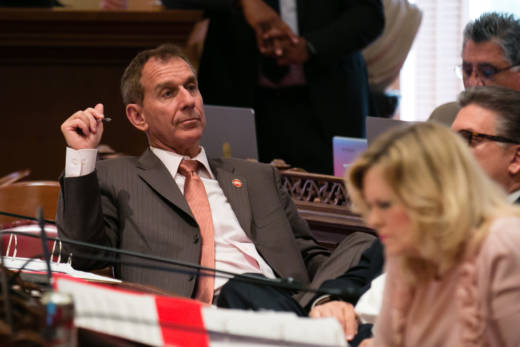Currently, creditors can seize 100 percent of the money in a person's account. The new bill wouldn't cancel anyone's debt, but Wieckowsk says it could give low-income Californians relief while they repay what they owe.
"People won’t be evicted from their homes or apartments because their funds have been wiped out," Wieckowski said.
The bill could also help people like Sharon Randall, who have money collected from their accounts to settle debts that aren't even theirs.
In 2014, Randall went to her regular Bank of America branch to withdraw money from her account. But she discovered her account was empty. The teller said a collection agency had put a levy on her account. Randall, a single mom, was left penniless.
"It was a nightmare," said Randall, who works at the Port of Oakland. "That should never happen to anyone, period."
Randall borrowed money from relatives to pay her bills and was later able to straighten out her case in court and recover her money. She believes her case was either one of ID theft or just a mistake by the collection agency.
"Do you know how many Sharon Randalls there are?" she asked.
She's concerned with news of the Equifax hack and other data breaches, more people could go through the experience of having their accounts emptied for a debt that is not theirs.
"I mean, we are hearing of so much more identity theft in 2017, that nobody is protected," she said.
Sharon Djemal, an attorney with the East Bay Community Law Center, says she has seen dozens of cases like Randall's in recent years. Often it happens because an individual's identity has been stolen to make purchases and rack up debt.
Djemal says that attorneys at her organization have been able to win or settle collection cases against their clients because the creditor is unable to prove the person who they are targeting actually owns that debt.
While creditors are supposed to notify individuals in writing that they are in debt-collection proceedings, sometimes people never get those letters, at times because they've changed addresses, she said.
"I've had clients who the first time they heard they had a debt was when they got a bank levy," Djemal said.
The California Association of Collectors declined to comment on the issue of mistaken debt collection cases pursued by its members. But the association's website says they are committed to correcting collection cases where an individual's identity has been stolen.
The group opposes the bill, along with the California Bankers Association. They argue that bank levies are a last resort, legitimate measure to recover debt. They say the bill is unnecessary because people can already ask the courts for an exemption, and that process provides sufficient protections for people who cannot afford to pay a debt.
An earlier version of the bill, which the state senate passed, shielded up to $4,800 from bank levies, but negotiations in the Assembly reduced the amount that would be exempted.
Sixteen states provide protection from bank levies, according to supporters of the bill.
